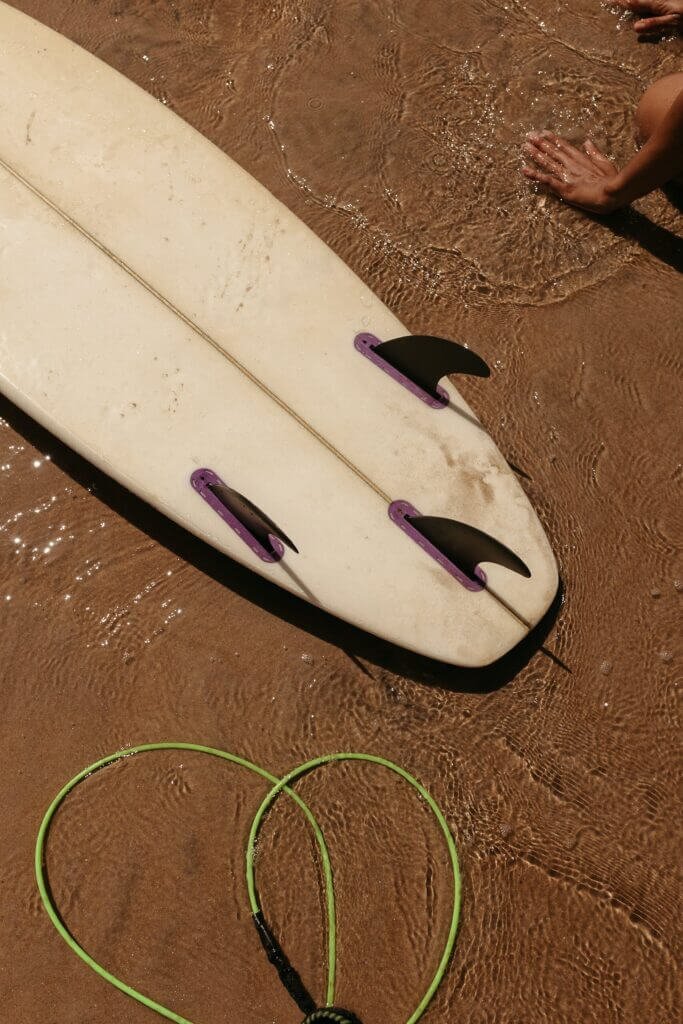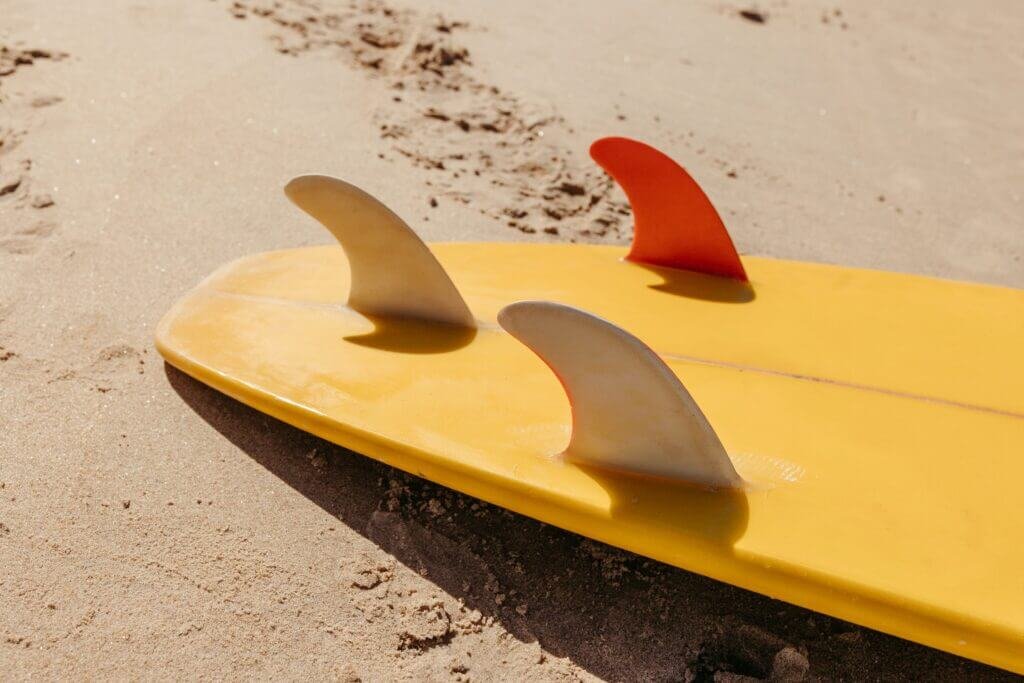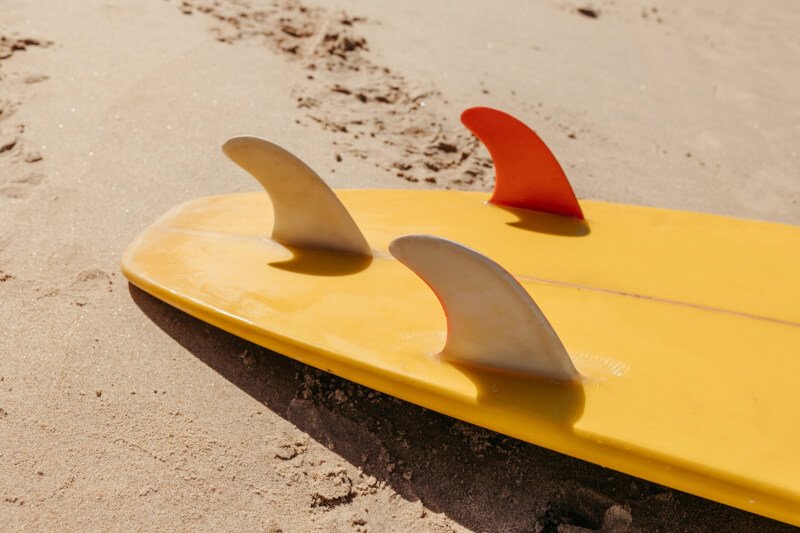Heading out on a camping trip? Planning your packing list can sometimes feel like a daunting task. But fear not! We’ve got you covered with a comprehensive guide on the essential items you need to bring along for a successful camping adventure. Whether you’re a seasoned camper or a first-timer, this article will ensure you have everything you need to make the most out of your outdoor getaway. From shelter and cooking gear to lighting and personal essentials, we’ve got all the bases covered. So, grab a pen and paper, and let’s get started on your ultimate camping packing checklist! When preparing for a camping trip, it’s important to make sure you have all the essential items to ensure a comfortable and enjoyable experience. In this article, we will guide you through the necessary gear and equipment you should consider bringing along on your outdoor adventure.

Shelter and Sleeping Gear
Tent
One of the most crucial items for camping is a tent. It provides shelter and protection from the elements, ensuring a good night’s sleep. Look for a tent that is durable, easy to set up, and spacious enough to accommodate everyone in your group.
Sleeping Bags
A quality sleeping bag is essential for a restful sleep. Choose one that is suitable for the expected temperature range during your camping trip. It’s also beneficial to consider the insulation type and weight, as well as whether it can be easily compressed for efficient packing.
Sleeping Pads or Mattresses
For added comfort, sleeping pads or mattresses can provide cushioning and insulation against the cold ground. There are various options available, including self-inflating pads or foam mattresses, so choose one that suits your preferences and needs.
Pillows
Don’t forget to bring pillows for a comfortable night’s sleep. While you can use regular pillows from home, there are also specially-designed camping pillows that are lightweight and compact for easy transportation.
Tarp or Groundsheet
To protect the bottom of your tent from sharp objects or moisture, a tarp or groundsheet is essential. It acts as a barrier between the tent floor and the ground, preventing damage and keeping the interior clean and dry.
Cooking and Food
Camp Stove
A camp stove allows you to cook meals and boil water efficiently. Look for a stove that is lightweight, compact, and easy to use. There are various types available, including gas-powered and multi-fuel options, so consider your specific needs when choosing.
Fuel for Stove
Make sure to pack enough fuel to last throughout your camping trip. The amount required will depend on the duration of your trip and the frequency of cooking. It’s always wise to bring extra fuel as a backup.
Cooking Pots and Pans
Bring a set of lightweight cooking pots and pans that are suitable for outdoor use. Look for non-stick options for easier cleaning, and make sure they are compatible with your chosen camp stove.
Utensils and Cutlery
Pack essential utensils and cutlery, such as spoons, forks, knives, and cooking utensils, for preparing and eating meals. Opt for lightweight and durable options that are easy to clean and pack.
Cooler or Ice Chest
If you plan to bring perishable food items or beverages, a cooler or ice chest is essential to keep them fresh and chilled. Consider the size and insulation capabilities when choosing the right cooler for your needs.
Food Storage Containers
To keep your food organized and protected from outdoor elements, bring food storage containers. These containers will help prevent spoilage and keep your food fresh throughout your camping trip.
Water Bottles or Hydration Pack
Staying hydrated is crucial, so be sure to bring water bottles or a hydration pack. Opt for durable and lightweight options that can be easily refilled during your outdoor activities.
Spices and Condiments
Enhance the flavors of your meals by packing a selection of your favorite spices and condiments. Small, resealable containers are ideal for transporting these essentials without taking up too much space.
Trash Bags
To leave no trace and maintain a clean campsite, bring trash bags to dispose of waste properly. Ensure you follow environmentally-friendly practices by properly disposing of garbage and minimizing litter.

Clothing and Personal Items
Weather-Appropriate Clothing
Pack clothing suitable for the expected weather conditions during your camping trip. Consider layering options for versatility and be prepared for varying temperatures, including warmer days and colder nights.
Sturdy Shoes or Hiking Boots
Choose sturdy and comfortable shoes or hiking boots that provide support and protection for your feet during outdoor activities. Ensure they are broken in before your trip to avoid discomfort or blisters.
Rain Gear
Be prepared for unexpected rain showers by bringing waterproof or water-resistant jackets and pants. Ponchos or raincoats can also be useful for staying dry during outdoor activities.
Extra Socks and Underwear
It’s always a good idea to pack extra pairs of socks and underwear to stay fresh and comfortable throughout your camping trip. Moisture-wicking materials are recommended to keep your feet dry and prevent blisters.
Hat and Sunglasses
Protect yourself from the sun’s harmful rays by bringing a hat and sunglasses. A wide-brimmed hat will shield your face and neck, while sunglasses will protect your eyes from glare.
Swimwear
If you plan to swim or engage in water activities, don’t forget to pack swimwear. It’s great to have the option to cool off and enjoy water-based recreational opportunities during your camping adventure.
Towels
Pack towels for various purposes, such as drying off after swimming or showering. Quick-drying and lightweight towels are preferable for camping, as they are easy to pack and dry faster.
Toiletries
Include essential toiletries such as toothbrush, toothpaste, soap, shampoo, and any other personal care items you require. Remember to choose travel-sized options to save space and pack them in a waterproof bag.
Sunscreen and Insect Repellent
Protect your skin from harmful UV rays by applying sunscreen regularly. Additionally, prevent insect bites by bringing insect repellent and applying it as needed to ward off mosquitoes and other pests.
First Aid Kit
Safety should be a priority during any camping trip. A well-stocked first aid kit is crucial to treat minor injuries and ailments. Include bandages, antiseptic ointment, pain relievers, tweezers, and any necessary prescription medications.
Medication
If you require any medications, ensure you have an ample supply for the duration of your camping trip. Pack them in a secure, waterproof container to keep them safe and easily accessible.
Lighting and Navigation
Flashlights or Headlamps
Bring flashlights or headlamps to provide illumination during the night. Opt for LED options, as they are energy-efficient and have a longer battery life. Pack extra batteries or make sure your headlamp is rechargeable.
Extra Batteries
Ensure you have extra batteries for all your electronic devices and lighting equipment. It’s always better to be prepared with spare batteries to avoid any inconveniences during your camping adventure.
Lantern
A lantern can provide overall campsite lighting, making it easier to navigate and enjoy activities after dark. Look for compact and lightweight options that offer sufficient brightness and battery life.
Map and Compass
For navigation purposes, bring a detailed map of the camping area along with a reliable compass. Familiarize yourself with the map and any marked trails to ensure you navigate safely during your outdoor explorations.
GPS Device
Consider bringing a GPS device that allows you to track your location and navigate unfamiliar terrain. GPS devices can provide valuable information, especially if you plan on venturing out on longer hikes or exploring remote areas.
Whistle or Signaling Device
In case of emergencies or if you get separated from your group, a whistle or signaling device can be crucial to attract attention and call for help. Attach it to your backpack or keep it easily accessible at all times.

Tools and Equipment
Pocket Knife or Multi-Tool
A versatile tool like a pocket knife or multi-tool can come in handy for various outdoor tasks. From cutting ropes to opening cans, having a reliable tool will make your camping experience more convenient.
Camping Axe or Hatchet
If you plan to gather firewood or need to perform heavier tasks, consider bringing a camping axe or hatchet. Only bring these tools if they are necessary for your planned activities and ensure you use them responsibly.
Shovel
A collapsible camping shovel can be useful for digging fire pits, leveling the ground for your tent, or even digging a sanitation trench if necessary. Look for lightweight options that easily fold for convenient packing.
Campfire Grill or Grate
If you enjoy cooking over an open fire, a campfire grill or grate can be a great addition to your camping gear. It allows you to grill food and provides a stable surface for pots and pans.
Rope or Cord
Pack a length of sturdy rope or cord for various purposes, such as hanging a clothesline, securing items, or creating a makeshift shelter. Opt for a durable and lightweight option that doesn’t take up too much space.
Duct Tape
Duct tape is a versatile tool that can be used for quick repairs and temporary fixes. It can come in handy for patching up tents or gear, fixing broken items, or securing loose objects.
Clothesline and Clothespins
To dry wet clothes or towels, bring a portable clothesline and a few clothespins. It allows you to efficiently hang damp items and ensures they dry thoroughly during your camping trip.
Firestarter or Matches
For starting a campfire, bring firestarters or waterproof matches. Check the local regulations and use designated fire rings or pits, if available, and always practice responsible fire safety.
Folding Chairs or Stools
To sit comfortably around the campfire or relax outside your tent, consider bringing folding chairs or stools. Look for lightweight and compact options that are easy to transport and set up.
Camp Table
A portable camp table is useful for preparing meals, playing games, or organizing your camping essentials. Look for foldable tables that are lightweight and sturdy, making them easy to transport and set up.
Campsite Comfort
Camp Chairs or Hammock
For additional comfort and relaxation at the campsite, consider bringing camp chairs or a hammock. Set up your chairs by the fire or hang a hammock between two trees for a cozy and enjoyable experience.
Camping Table
A camping table provides a stable surface for cooking, dining, or organizing your camping gear. It adds convenience and organization to your campsite, making it easier to enjoy meals and activities.
Camp Rug or Mat
Bringing a camp rug or mat can enhance the comfort of your campsite and provide a place to relax or lounge outside your tent. It also helps keep dirt and debris from being tracked into your living area.
Portable Camp Shower
If your camping trip doesn’t have access to shower facilities, a portable camp shower can be a refreshing addition. These devices use solar energy to heat water for a quick and convenient outdoor shower.
Portable Toilet
For longer camping trips or when facilities are not available, consider bringing a portable toilet. There are various options, including folding toilets with disposable bags, which provide a hygienic and convenient solution.
Clothesline and Clothespins
To dry wet clothes or towels, bring a portable clothesline and a few clothespins. It allows you to efficiently hang damp items and ensures they dry thoroughly during your camping trip.
Entertainment and Recreation
Books, Magazines, or E-Reader
Relaxing with a good book or magazine can be a delightful way to unwind during your camping trip. Alternatively, an e-reader can save space by allowing you to have multiple reading options in one device.
Card or Board Games
Pack a deck of cards or your favorite board games to keep yourself entertained during downtime at the campsite. These activities promote bonding with family and friends and add fun to your camping experience.
Sports Equipment (e.g., Frisbee, Soccer Ball)
If you enjoy outdoor sports or physical activities, bring along sports equipment like a Frisbee or soccer ball. These items are easy to pack and can provide hours of entertainment and exercise.
Fishing Gear and License
If you plan on fishing during your camping trip, ensure you have the necessary fishing gear and a valid fishing license. Fishing can be a relaxing and rewarding activity, providing the opportunity to catch your own food.
Binoculars
For nature enthusiasts and bird watchers, binoculars are a valuable tool for observing wildlife and enjoying the beautiful surroundings. They allow for a closer look at distant animals and help you connect with nature.
Musical Instruments
If you have a musical inclination, consider bringing a portable instrument like a guitar or harmonica. Campfire sing-alongs and impromptu jam sessions can create memorable moments and add to the overall camping experience.
Camera
Capture the beautiful memories and breathtaking scenery with a camera. Whether it’s a smartphone, point-and-shoot, or DSLR, having a camera allows you to preserve the moments and share your camping adventures with others.
Emergency and Safety
First Aid Kit
A properly stocked first aid kit is essential for any camping trip. Include bandages, antiseptic ointment, pain relievers, tweezers, and any necessary prescription medications. Be familiar with basic first aid procedures and know how to use the items in your kit.
Emergency Contacts and Information
Before heading out on your camping trip, make sure to inform someone of your itinerary and provide them with emergency contact information. It’s essential to have a way to communicate with the outside world in case of an emergency.
Emergency Blanket
An emergency blanket, also known as a space blanket, can be a lifesaver in unexpected situations. It provides insulation and reflects body heat, helping to prevent hypothermia if you find yourself in a cold or emergency situation.
Fire Extinguisher
Safety should be a priority when camping, and having a fire extinguisher on hand is a crucial precautionary measure. It can help you control and extinguish small fires that may occur at your campsite.
Whistle or Signaling Device
Pack a whistle or signaling device to attract attention in case of emergencies or if you find yourself lost. It can assist search and rescue teams in locating you by producing a loud, distinct sound.
Emergency Shelter
Consider bringing an emergency shelter, such as a lightweight tarp or bivvy sack, as a backup option in case your tent becomes damaged or unsuitable for use. These shelters provide protection from the elements and can be lifesaving in certain situations.
Map and Compass
Even if you have a GPS device, always carry a map and compass as backup navigation tools. Electronics may fail or drain batteries, so having a reliable and traditional navigation method is essential.
Miscellaneous
Cash
While many campsites and recreational areas now accept card payments, it’s always wise to carry some cash. In remote areas or in case of emergencies, having cash on hand ensures you are prepared for any situation.
Identification
Bring identification documents such as your driver’s license or ID card. These may be required for certain activities or if you need to verify your identity.
Keys
Don’t forget to pack spare keys for your vehicle and any other locks you may have, such as bike locks or padlocks for your gear. Keep them in a safe and secure location.
Phone and Charger
Even though you may be seeking a break from technology, it’s essential to have your phone and charger with you for emergencies and communication purposes. Ensure your phone is fully charged before your trip.
Garbage Bags
To practice Leave No Trace principles, bring garbage bags for waste disposal. Properly dispose of all trash and leave your campsite and the surrounding area cleaner than you found it.
Ziploc Bags
Ziploc bags are versatile and can be used for various purposes. They are great for storing small items, keeping them organized, and protecting them from water or moisture.
Tupperware or Food Storage Containers
Consider bringing Tupperware or food storage containers for leftover food or meal preparations. These containers help prevent food waste, keep your meals fresh, and make cleanup more convenient.
Leave No Trace
Trash Bags
Be sure to bring trash bags to pack out all of your waste. Leave No Trace principles emphasize the importance of preserving nature and minimizing our impact on the environment.
Portable Camp Toilet
For longer camping trips or when facilities are not available, a portable camp toilet can be a game-changer. It provides a hygienic and environmentally-friendly solution for waste disposal while ensuring you leave no trace.
Biodegradable Soap
To minimize your impact on the environment, consider using biodegradable soap for washing dishes, yourself, and your camping gear. This type of soap breaks down naturally, leaving no harmful residues behind.
Reusable Water Bottle
Reduce waste and stay hydrated by bringing a reusable water bottle. This helps minimize the use of single-use plastics while allowing you to refill from water sources throughout your camping trip.
Campfire Etiquette
When building a campfire, practice proper campfire etiquette. Follow local regulations, use designated fire rings or pits if available, and ensure the fire is completely extinguished before leaving the campsite.
Keep Wildlife Wild
Respect wildlife and their habitats by observing them from a distance and refraining from feeding or approaching them. Keep food securely stored to avoid attracting wildlife, and dispose of waste properly to prevent disturbances.
By packing these essential items for your camping trip, you’ll ensure a comfortable, safe, and enjoyable outdoor experience. Remember to always check local regulations and guidelines, and be mindful of Leave No Trace principles to preserve the natural beauty of the wilderness. Happy camping!


